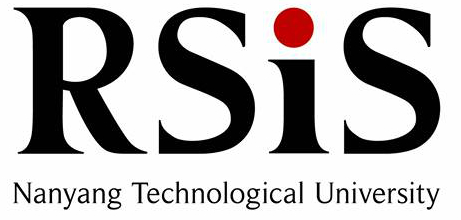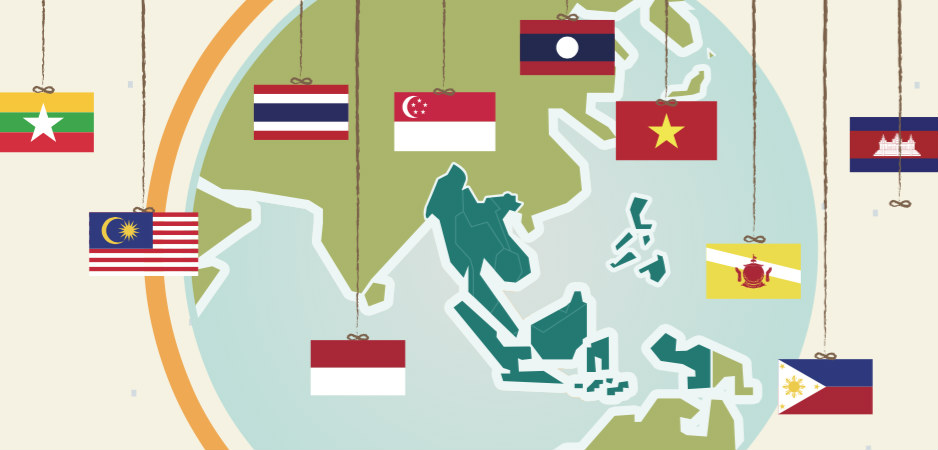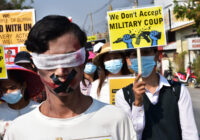Will ASEAN still be the cornerstone of Indonesia’s foreign policy?
A central focus on the Association of Southeast Asian Nations (ASEAN) has always been a dominant theme in Indonesian foreign policy. This continues to be the case, despite ASEAN’s deficiencies in providing Indonesia with a suitable dispute settlement mechanism with its members — a shortcoming exemplified by ASEAN’s disregard of Indonesia’s protestations about its Sipadan-Ligitan boundary dispute with Malaysia.
Indonesia’s interests have also sometimes been compromised for the sake of ASEAN, such as its proposal on the adoption of a peacekeeping force within the ASEAN Political Security Community (APSC) framework. Nevertheless, during President Susilo Bambang Yudhoyono’s administration (2004-14), ASEAN centrality was the main thrust of his policy of “dynamic equilibrium,” which sought to promote ASEAN as the main vehicle of the evolving regional architecture in the Asia Pacific.
Jokowi’s New Focus
Under President Joko Widodo (Jokowi), foreign policy appears to be increasingly high profile as Jakarta seeks to tighten bilateral relations with major powers in the Pacific and Indian Ocean, with a heavy focus on the domestic economic dimension. This is in opposition to the focus on multilateralism and norms promotion that was characteristic of Yudhoyono’s administration.
How is ASEAN positioned within the Jokowi administration’s foreign policy? As Indonesia’s global profile rises, its choices of partners are expanding, but doubts have also resurfaced about whether ASEAN is still the bedrock of Indonesia’s foreign policy. With foreign policy given a high profile — countering earlier predictions by some analysts that President Jokowi would be more inward-looking — it is tempting to argue that Indonesia’s foreign policy priorities are shifting beyond ASEAN.
Jokowi’s new “Global Maritime Fulcrum” doctrine, for example, has highlighted Indonesia’s intention to “look west” in terms of deepening relations with major players in the Indian Ocean such as India and South Africa. Strengthening bilateral ties with Pacific powers is also becoming a major policy preference instead of multilateralism. The emergence of a more nationalistic approach has further underscored these shifts.
According to Retno Marsudi, Indonesia’s new foreign minister, the current policy focus is “people-oriented.” Jokowi echoed this statement during a discussion on the implementation of the ASEAN Economic Community (AEC), at the 25th ASEAN Summit held in Myanmar in November 2014. The president said that Indonesia would not be supportive of the AEC’s goal of a single market and production base by the end of 2015, if it disadvantages Indonesia by making the country merely a market for goods produced by neighboring countries. His calls for cooperation based on reciprocity and mutual respect were a follow up to Indonesia’s criticism of several neighboring countries such as Singapore and Malaysia, limiting Indonesia’s attempts to set up banking operations in those nations in 2013. Several other policies, such as the sinking of illegal fishing vessels in Indonesian waters, have also been interpreted as signals that Indonesia will not hesitate to defend its national interest at the expense of ASEAN.
Reframing ASEAN?
These emerging trends are worrying, as ASEAN is entering a deeper phase of integration and Indonesia’s proactive role is anticipated by member states. However, Indonesia’s decreasing willingness to compromise its national interest should not be interpreted as a move away from ASEAN. This is confirmed by Indonesia’s continued commitment to ASEAN’s community-building process, as reasserted by Indonesian Ambassador to ASEAN Rahmat Pramono in December 2014.
Historical trajectories have steered Indonesia’s willingness to maintain the centrality of ASEAN. The focus on the region was the result of the manifestation of a softer approach undertaken by Indonesia, especially after it realized that its confrontational policy during the Sukarno era only isolated the country from Western capital investment and aid that was needed to revamp its weak economy. However, Indonesia no longer perceives ASEAN as a mere buffer zone of neutrality, but rather as a forum that is able to accommodate its bigger goal as a middle power that can play a prominent role — in both bilateral and multilateral settings — together with major powers in the Indo-Pacific region. In so doing, Indonesia needs to substantiate its importance. So far, its ability to position itself as the main mover of ASEAN norms and identity has buttressed its stature as the natural leader of ASEAN, as acknowledged in policy circles and academic literature.
 ASEAN is also important for external powers. Its capacity to enmesh many prominent powers within its overarching structure makes it the most comprehensive venue of interaction in the Asia Pacific. Indonesian activism in norm promotion and dispute settlement facilitation within this forum, therefore, contributes greatly to Indonesia’s international image as the leader of ASEAN.
ASEAN is also important for external powers. Its capacity to enmesh many prominent powers within its overarching structure makes it the most comprehensive venue of interaction in the Asia Pacific. Indonesian activism in norm promotion and dispute settlement facilitation within this forum, therefore, contributes greatly to Indonesia’s international image as the leader of ASEAN.
Indonesia has benefited from this image. Its strategic positioning in ASEAN has led to an unprecedented surge of partnerships with key countries, including the United States, China, Japan, Australia, South Korea and the European Union.
Consensual Leadership and its Implications
Considering the consensual nature of ASEAN, Indonesia has to continuously negotiate its vision of making ASEAN a key architect of the Pacific and Indian Ocean regional developments with other ASEAN members. “Bargaining” with other ASEAN members is, therefore, required to achieve consensus. For example, Indonesia was able to negotiate its ASEAN Declaration of Human Right’s initiative to be acceptable for all members of ASEAN, which contributed significant progress toward norms-building in Southeast Asia — this, despite the overall stalemate that the initiative has resulted in as of early 2015. Indonesia should continue being at the forefront to strengthen ASEAN unity, working together with member states to push for deeper integration within the institution, resolving conflicts between members in the region and promoting norms such as human rights and democracy.
The point to stress is that Indonesia’s proactive and consensual leadership in ASEAN will endure during Jokowi’s administration. However, pragmatism will be its defining feature. This is exemplified by Indonesia’s recent proposal to expand the ASEAN Chiefs of Defence Forces Informal Meeting (ACDFIM) into an ACDFIM Plus that includes counterparts from key players in the Asia Pacific, like the US and China. The proposal underscores Indonesia’s interest in positioning ASEAN at the center of the regional architecture by making it a more inclusive and accessible forum that extends to major Pacific and Indian Ocean countries.
With the present security environment in the region marked by many flashpoints, which are being exacerbated by external pressures arising from the US-China rivalry, Indonesia is concerned about ASEAN’s ability to speak with one voice. The political and economic benefits that Indonesia gains from its strategic partnership with many major powers such as the United States and China will depend on how effective it is in rallying ASEAN. Disunity within the group will have implications on Indonesia’s image as the first among equals.
In this regard, pragmatic shifts in Indonesia’s foreign policy will be a reflection of its “free and active” foreign policy while keeping ASEAN centrality unbroken, harmonizing interests and making normative bargains. Indeed, this positioning is very important as a prerequisite for reaching the vision of ASEAN as the heart of Asia Pacific and Indian Ocean regionalism — which is an important element in the current “Global Maritime Fulcrum” strategy.
*[This article was originally published by Fair Observer’s content partner, the S. Rajaratnam School of International Studies.]
Fair Observer is a nonprofit organization dedicated to informing and educating global citizens about the critical issues of our time. Please donate to keep us going.
The views expressed in this article are the author’s own and do not necessarily reflect Fair Observer’s editorial policy.
Photo Credit: Angkrit / OPgrapher / Shutterstock.com
Support Fair Observer
We rely on your support for our independence, diversity and quality.
For more than 10 years, Fair Observer has been free, fair and independent. No billionaire owns us, no advertisers control us. We are a reader-supported nonprofit. Unlike many other publications, we keep our content free for readers regardless of where they live or whether they can afford to pay. We have no paywalls and no ads.
In the post-truth era of fake news, echo chambers and filter bubbles, we publish a plurality of perspectives from around the world. Anyone can publish with us, but everyone goes through a rigorous editorial process. So, you get fact-checked, well-reasoned content instead of noise.
We publish 2,500+ voices from 90+ countries. We also conduct education and training programs
on subjects ranging from digital media and journalism to writing and critical thinking. This
doesn’t come cheap. Servers, editors, trainers and web developers cost
money.
Please consider supporting us on a regular basis as a recurring donor or a
sustaining member.
Will you support FO’s journalism?
We rely on your support for our independence, diversity and quality.








Comment